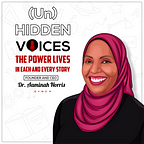Becoming An Antiracist: Six Steps You Can Take Toward Making Black Lives Matter
Black Americans experience, “a terror relayed not by the dogs, hoses, and bombs in the new South of the sixties, but by the near nonchalance of legal murder anywhere in the United States today: as if these living breathing black citizens, now dead, were not supposed to go about their lives, walk down the street, stand on a corner, put their hands in their pockets, take a toy gun to the park, go down the stairway of their own building — breathe,” according to Dayan, 2015 who speaks to the historical terror of state-sanctioned violent attacks on Black lives. The daily terror Black people suffer as a result of the nonchalance over our inability to breathe is exacerbated by COVID-19, a respiratory disease that limits its victims’ capacity to breathe. According to APM Research Labs, “The latest COVID-19 mortality rate for Black Americans is 2.3 times as high as the rate for whites and Asians.”
This is a watershed moment in the history of the United States. We each have to decide if and how we are going to do the work of making Black Lives Matter. I have decided that my contribution to Black lives is amplifying Black voices, including my own, and training teachers to be fair to Black students. During the past five years, I have trained hundreds of California’s teachers.
I explain to my students that my two younger daughters each studied performing arts. As artists, they practice perfecting their art. They never pronounce, ‘Today, I am an artist!’ Rather, they continue to work at becoming better artists and perfecting their craft. Similarly, do not pronounce ‘I am not a racist!’ Recognize that just as an artist practices their craft every day, you must practice antiracism every day.
Thus, I ask you to make a lifelong commitment to becoming an antiracist who makes Black Lives Matter every day. Your commitment to Black lives must endure because the United States is a society that is stratified by race. Resources are continually taken from Black people, including our right to breathe because we are Black. Until the Country stops being racist, continue becoming antiracist.
Below are six antiracist practices that you can engage in at home, at school, at work, and in your everyday life:
- Have difficult conversations about racism. We have been conditioned to experience discomfort discussing racism with our children, families, friends, and colleagues. Be uncomfortable so that you can grow and heal from the dehumanization of racism. Turning a blind eye to racism doesn’t end racism.
- Plan your antiracist work with Black people. Anti Blackness is systematized. Recognize that it is not alright to discuss antiblackness and antiracism without including Black colleagues, friends, and peers in the conversation. This is particularly true if you are making a statement or planning training for your school, district, or company. If you truly believe Black Lives Matter, you must engage with Black people.
- Communicate directly with the Black people who are in your lives. Call, text, email, or send a direct message to let us know that you are concerned. To have successful relationships, do the emotional labor of reaching out and letting Black folx know that you care about us. We do not expect you to solve systemic racism with a phone call, but you can begin to build rapport, trust, and community. You can start by leaving me a comment after you read this article.
- Contact your elected and school officials. Let them know that you are aware that Black people are dying at alarming rates due to Covid-19. Do not support your schools reopening until there is either a vaccine or equitable resources for safe social distancing on your campus and in every school in your district.
- Create safe spaces. Black people are reeling from complex trauma. Zaretta Hammond describes the need to “leverage oxytocin,” which our brains produce when we feel safe. Do the work to build connectedness and relationships. Even when distance learning we can build community and trust through Humanizing Online Teaching.
- Subscribe to the (Un)Hidden Voices podcast. Available on YouTube, Anchor, Spotify, or wherever you get your podcasts. This is your opportunity to listen to people who you don’t get to hear from every day. The guests are folks you want to hear from because they have found the strength within and support of family to overcome life’s obstacles. This podcast is an amplification of the voices of Black people who are often obscured from mainstream media.
